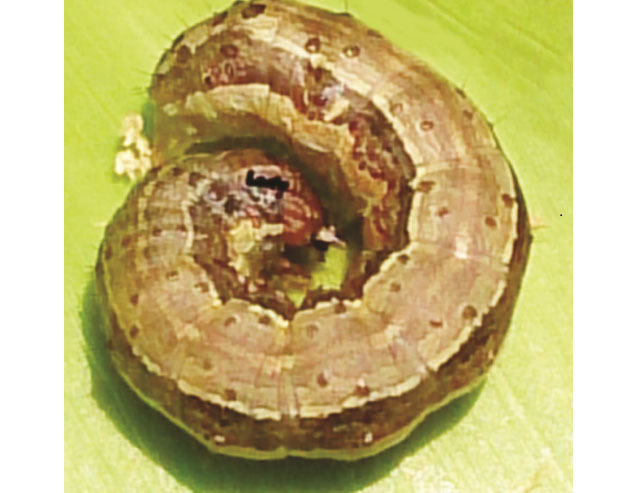
Is Uganda ready for the next big attack?
Uganda is under attack. It is under attack from the Fall Armyworm in what experts call a “biological invasion”. Unfortunately, it appears, the government was caught unprepared. It has reacted with a mixture of indecision, panic, bluff, and deployment of ineffective intervention. As a result, the farmers – who are at the frontlines to battle the new enemy – are poorly equipped, frustrated, and desperate.
Umaru Ddumba, who has 107-acre farm in in Makukuba Village, Nabbaale Sub County, in Mukono District near Kampala, is a typical farmer in this category.
When he set out to plant his 12-acre maize plantation, he was looking at striking a windfall of over Shs30 million from his crop. He expected to harvest 20 bags of 100kgs each from each acre, which would give him 240 bags. And if he sold each at 150,000, he would get Shs36 million. But today, when you get to his farm, what you see are shriveled plants, with leaves mostly covered in numerous holes of varying sizing as if they were shredded by grenade shrapnel and are still on fire.
The Fall Armyworm, a never before seen pest in Uganda, caught Ddumba by surprise. He had prepared for the usual maize stalk borer(ndiwulira) by setting aside Shs1 million for pesticides and spraying. Instead, by mid- April he had spent Shs7 million on fighting the army of worms – with minimal success, on a field he planted in March. He was looking to harvest in June but is unsure now.
“I have little hope of getting any sizeable harvest,” he says.
But he cannot give up. He continues to spray because he fears the worm may attack his other crops on the farm since he is a mixed farmer who also grows bananas, coffee, and pineapples. He also keeps cattle.
Failure of this maize crop means Ddumba is making losses over two seasons in a row. Last season, he planted seven acres of maize and was expecting to get 140 bags but instead got only 105 as drought ravaged the country.
Ddumba’s losses, however, could have an even bigger implication for the economy. Even before the fall armyworm outbreak, food prices had remained stubbornly high because of the last poor harvest. Failure of this season will mean higher prices and possible stock-outs and famine.
Yet Ddumba is not alone. The armyworm has ravaged over 60 districts out of the 111 in the country. Many of those not attacked are not maize growing districts.
 The Independent Uganda: You get the Truth we Pay the Price
The Independent Uganda: You get the Truth we Pay the Price



Going by reports in the media, the devastation caused by this worm is already catastrophic. The spillover effects of this invasion and the consequent reduction of the would be maize harvests is likely to affect national food security. Already, the prices of maize and other cereal foods and products are up given the distress situation the country has been through.
If the government, as indicated in this article, was caught unaware, it will be a shame if adequate plans to contain the likely food shortages are not discussed and mitigation measures put in place.
For its true that Uganda was experiencing an outbreak of new pest and diseases because of climate change and climate variabilities which would negatively impact the nation’s food & nutrition security and wealth-creations effort.
On seeing the climate change,we cud ask ourselve that,our are we going to leave in the next couples of years if this #army_worm contineous in our country?
About all lets put our country into prayer cos everything is posible from our God,